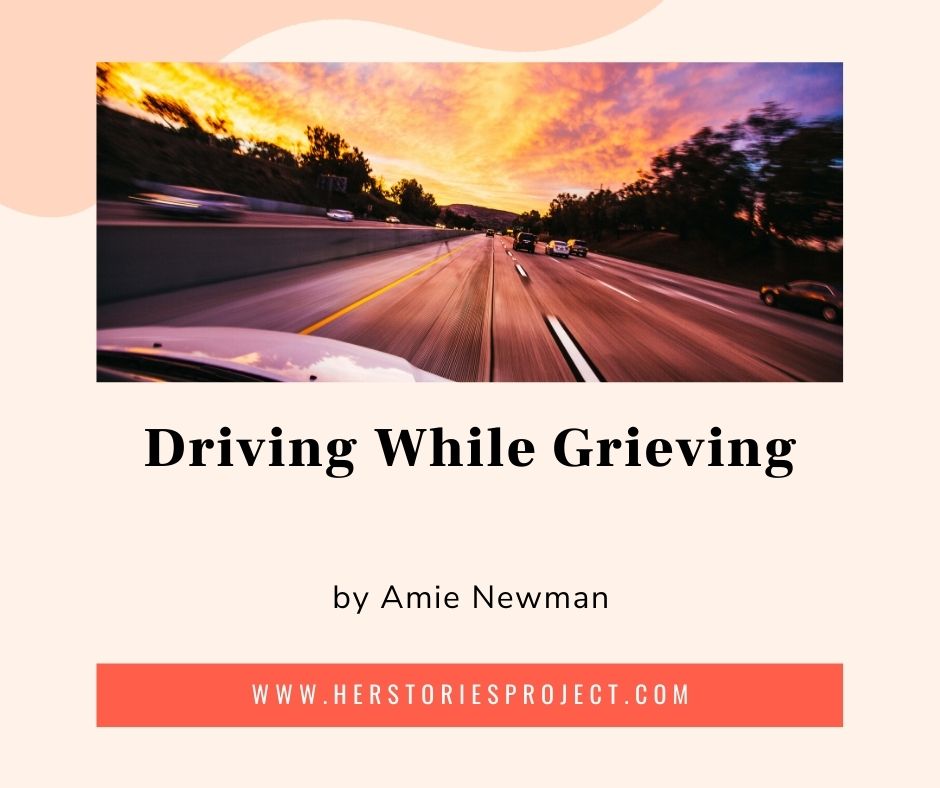by Amie Newman

When I am 22 years old it’s an adventure: the two of us live in an old school bus with no bathroom, on a river crowded with crawdads, in rural North Carolina. We break up shortly afterward, but not before hopping a plane to Greece, sleeping on the deck of a boat making its way across the ocean to Israel, settling into kibbutz life for a time, and getting stuck in Egypt traveling through the desert on horses, in search of pyramids.
Thirty years later, I sit with him in an old cottage with missing shingles and stucco walls. There are gaping holes in the ceiling and paper taped to the floor to protect the newly sanded wood beneath.
It’s winter and the house is surrounded by at least 6 inches of smooth, pearly snow. The land sits directly across the canyon from the white buttes sparse with the splinter of green trees, presenting themselves to the soft cotton-tipped peaks. I stare out at a vast bleached field that bails to a bouldered river below. It’s so cold even the quail are hiding. A lone hawk surveys the land.
I raise my eyebrows and take a deep, long inhale. I exhale my exhaustion and try to zero in on the quiet glory of my surroundings wishing desperately for release. This is his cottage in this photo-perfect terrain, and we are here together: middle-aged, separated from our respective spouses, each of us with children, years of baggage, and shared history between us. It’s been thirty years and we’ve found our way back to each other in a dark time.
I leave his house, a scribbling drive through the mountains and head home to the city a few hours away. I wind my way over wet roads, through the glowing emerald trees and mountains that swell with pride, though it’s all blurry through my glassy eyes. The tears are nearly there but I will them away. The music, the beauty of the view, and my dog snoring in the back of the car keep me hovering close to but not entirely present. I ignore the pain that sits like a boulder in my belly.
I think of my mother’s death during these drives back and forth over the mountains to visit him.
I crack bit by bit. Mile by mile. Season after season. Egged on by the sparkle of the green moss, the blinding of the mountain snow, the brightening of autumn leaves, I drive. Hands gripping the wheel, I can’t run. My foot on the gas, my mother’s absence squeezes me tight and my grief has nowhere to go. I wail to release the beast.
I picture myself pulling up to his mountain retreat. His wide shy smile and dark eyes. I gently caress his face, his hair. I lean in for kisses I can’t forget. The way he kisses me with a desire that never retreats. But as much as I want him and this old cabin to help, they don’t fill the holes cratered by her absence.
Shortly after my mother dies, I wake up and think: “I am free.” I feel despondent. But with the despondence comes a degree of relief. It’s a relief I continue to feel now, almost three years later — the mystifying mix of despair and release. I am both crushed and liberated. The constant mental friction is overwhelming. There is no center. Nothing keeps me tethered to this plane. I float.
This is how it happened: Thirty years after we live in that school bus together, he flies across the country for a job interview, to the state I live in now. He and his wife are divorcing and he’s looking to move this way permanently.
I’m separated from my husband. My mother has been dead for a year. I know he is coming because he emails me. I am desperate to see him — even with my mother’s death a constant echo in my ear. I have no idea if my home holds a place for me any longer. Nothing feels right. My kids are both out of the house. I am no longer living with the man I spent 25 years growing into adulthood with. My closest relationships gone or forever shifted in the span of a year. I am searching for a way out of the pain and spend a lot of time taking deep inhales and holding my breath, still and focused. In this place, hovering between inhale and exhale, I exist without grief.
My mother is killed in a car accident one dark December evening, on a rainy road under construction. She is at the wheel of her black Honda Accord, headed home from a weekly volunteer job tutoring refugee women in English. A young woman, a staff member with the organization that runs the class, is in the passenger seat having taken my mother up on her offer to drive her home that evening. Seattle winter nights carry a hint of danger in the eternal dreariness.
The headlights of the car on the other side of the road veer too close to my mother’s and she is hit head-on. Her car spins, T-boned by the car behind her.
The moments between impact and when the paramedics show up are unknown to me. The young woman suffers broken bones. The left side of my mother’s body is smashed but she is alive when the ambulance arrives. Twice she is resuscitated on the way to the hospital, her pacemaker struggling to stay operational. Still, after hours in the trauma ward, she dies on the table in a white hospital gown. I am right beside her.
I feel my soul slowly dissolve in the moments after her death. Before we part forever, I whisper in her ear, “I love you and always will” and fall apart.
I stumble through the days, weeks, and months, in shock, without the faintest idea of how to live without her.
A year after her death. I head to the only bar within walking distance of my house. A big neon sign rests atop a bright blue wall. I get there before him. It’s loud inside, and dim-lit, but bright enough to feel seen so I head to a cocktail table and high booth. He arrives soon after. We hug awkwardly. He knows I’m grieving but neither of us knows what we’re supposed to do with ourselves. We leave in his rented car, drive down to the lake, and park. He forgets to put the parking brake on, and we start to roll toward the lake. Then we have sex, and he drives me home, to grieve.
He takes the job for which he had interviewed and moves to the eastern part of the state. He lives on the third deepest lake in the country, in a clean, new rental condo, and waits for me to visit. I do. But I’m not sure I should be there. I have no idea what I need even if it’s what I want (to believe).
We spend time together, suspended from our day-to-day lives. Snowshoeing in the mountains, paddle-boarding the lake, sleeping in the woods. We eat edibles and merge, skin to skin, gazing deeply into each other’s eyes we practically hypnotize. We slide into the empty spaces left by our former lives. Together we find a similar journey and without speaking know, there is a reason for us here and now.
When I think about what’s next, I drift away on dreams I am in no way ready to turn into reality.
The drive is long and winding between our homes. I miss my mother. My kids. My marriage. I take the time in the car, for hours and hours, to simply exist. I am not here, and I am not there. In the car, I am safely moving.
I remain unsure of what I need or want. He loves me through it.
Eventually, he moves to his house on the bluff, the deep lake in the distance. The cottage is in disrepair but the view is too juicy to pass up. I continue to visit him. The drives shake something free from me.
When I leave his little house and this man I have known and loved for decades, another trip across the mountain passes ahead of me, there is a brutally beautiful moment that always gets me. Not more than five miles outside of town lives a short tunnel. It takes only seconds to fly through it. But every time, every single time my car approaches the wide mouth of the other side, I feel as if I’m being birthed into an awesome world, glorious, sharp, and inexplicable. Thrust into a natural beauty that makes my abdomen contract and release. An opening.
On my final trip over and back, I cry. I know I will miss him deeply but the space between what was and what is, it’s vast. It’s time to stay put for a bit, examining what I’ve shaken free on these long journeys. I dull the aching that accompanies me everywhere by homing in on the hurt of the here and now while I drive — releasing the guttural sadness from my body, I hit the steering wheel and scream.
I relearn the sound of my voice, on those drives, with no one but me to hear. I discover a sliver of self-love and hold it tight. I acknowledge to myself the nuances of what it means to grieve a mother whose love and life were complicated. I find pride in having raised two humans into adulthood. I sit with the love of a man who walked alongside me for 25 years, in sickness and in health, through the pain and joys of parenthood, and a life well-lived. I am flooded with moments of release.
I revel in the right mix of blue skies, white clouds, sunshine, and wind. I roll down my window, feel the breeze kiss the tears on my cheeks, and when the light hits my eyes, I fan my fingers and wiggle them in the air toward the heavens above. I’m almost home.
Amie Newman is a strategic communications professional and creative writer and editor with extensive experience bringing social change organizations’ stories and issues to life to bolster awareness and compel action. She works primarily with mission-driven organizations to use communication to create the change we want to see in the world. Her personal essays have been published in Entropy, Lillith, ManifestStation, Kveller, Ask Me About My Uterus, and Bright Magazine. Her journalism has been published in Truthout, Common Dreams, Huffington Post, Ms. Magazine online, and in an anthology for high-school students about reproductive rights by Greenhaven Publishing. Amie Newman Twitter: @amienewman Instagram: @amiebnewman

 Follow
Follow